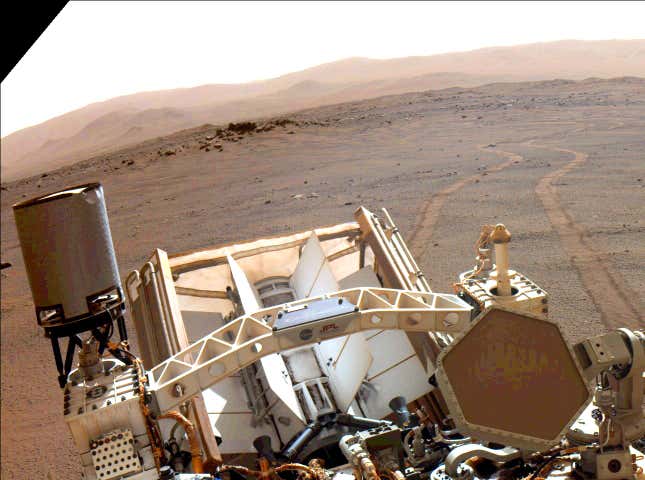
Slow and steady is winning the race. NASA’s Perseverance Rover has broken the record for the longest distance driven by a rover on the Red Planet, according to a release from NASA’s Jet Propulsion Lab. Currently en route to its final destination of the Jezero Crater river delta—a 3-mile journey from its landing site—the rover traveled 1,047 feet in one day. Even more impressive, it did so with minimal help from humans.
Rover drivers on Earth at NASA’s Jet Propulsion Laboratory in California are driving the rover using special 3D glasses and 3D photos to view the surrounding terrain more accurately. This allows the team to select different destination points along the route for Perseverance, but the path the rover takes to get to those points is decided by its onboard self-driving system. Along the way, Perseverance needs to identify hazards like jagged rocks, loose sand, and craters, and figure out how best to avoid them in real-time, without help from Earthlings.
While previous rovers also had self-driving software, Perseverance’s advantage is that it can make decisions while its wheels are still moving. Older models, like the Curiosity Rover, had to stop whenever they had to make a decision, resulting in them covering much smaller daily distances. The scientists at the Jet Propulsion Laboratory have dubbed this the “thinking while driving capability.”
Perseverance’s top speed is a whopping 0.1 miles per hour, and it can cover upwards of 300 yards per day, according to NASA. Perseverance is currently heading to the Jezero River Basin, a bone-dry region that NASA believes once featured rushing waters. Along the way it will be searching for evidence of past microbial life as well as collecting soil and rock samples that future Mars missions will retrieve for further analysis. Since Perseverance can travel more quickly than other probes, it will also allow scientists more opportunity to conduct experiments and collect samples.